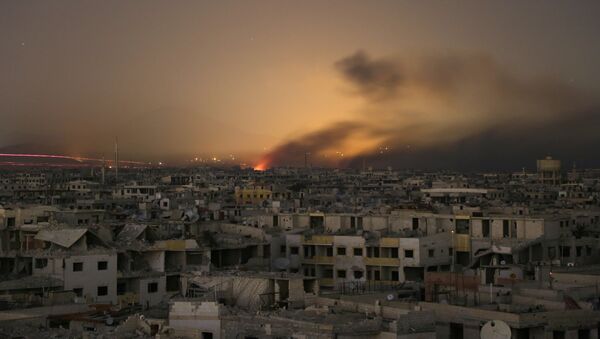Field sources speaking to Iran's Fars News Agency said that the mass grave, discovered in the city of Harasta, contains dozens of bodies of civilians and army servicemen thought to have been executed by the terrorists.
Harasta was occupied by Ahrar al-Sham, a coalition of Islamist and Salafist units waging war against the Syrian government for seven years. The militants were dislodged from the city by government troops on Saturday. Over a thousand Islamists and some three thousand members of their families left the city for Idlib province on Friday.
As the Syrian army moves closer and closer to wrapping up Operation Damascus Steel, the military operation aimed at freeing Eastern Ghouta from Islamist control, troops have made a series of gruesome and unexpected discoveries, including mass graves, underground facilities and makeshift weapons manufacturing plants used by the terrorists.
NEW MAP: #Harasta has been secured by #SAA forces. Remaining militants deployed in the #Damasucs suburbs of #Jobar, #Zamalka and #Erbeen are leaving East #Ghouta in accordance with an agreement with the Syrian state and under the supervision of the #Russia/n forces. #Syria pic.twitter.com/YvN1I8MdJv
— Peto Lucem (@PetoLucem) 27 марта 2018 г.
Testimony from some of the estimated 400,000 civilians in the militant-controlled pocket has also offered details about the terrorists' systematic violations of human rights, imprisonment and torture of those they defined as 'infidels', and the use of civilians as human shields.


